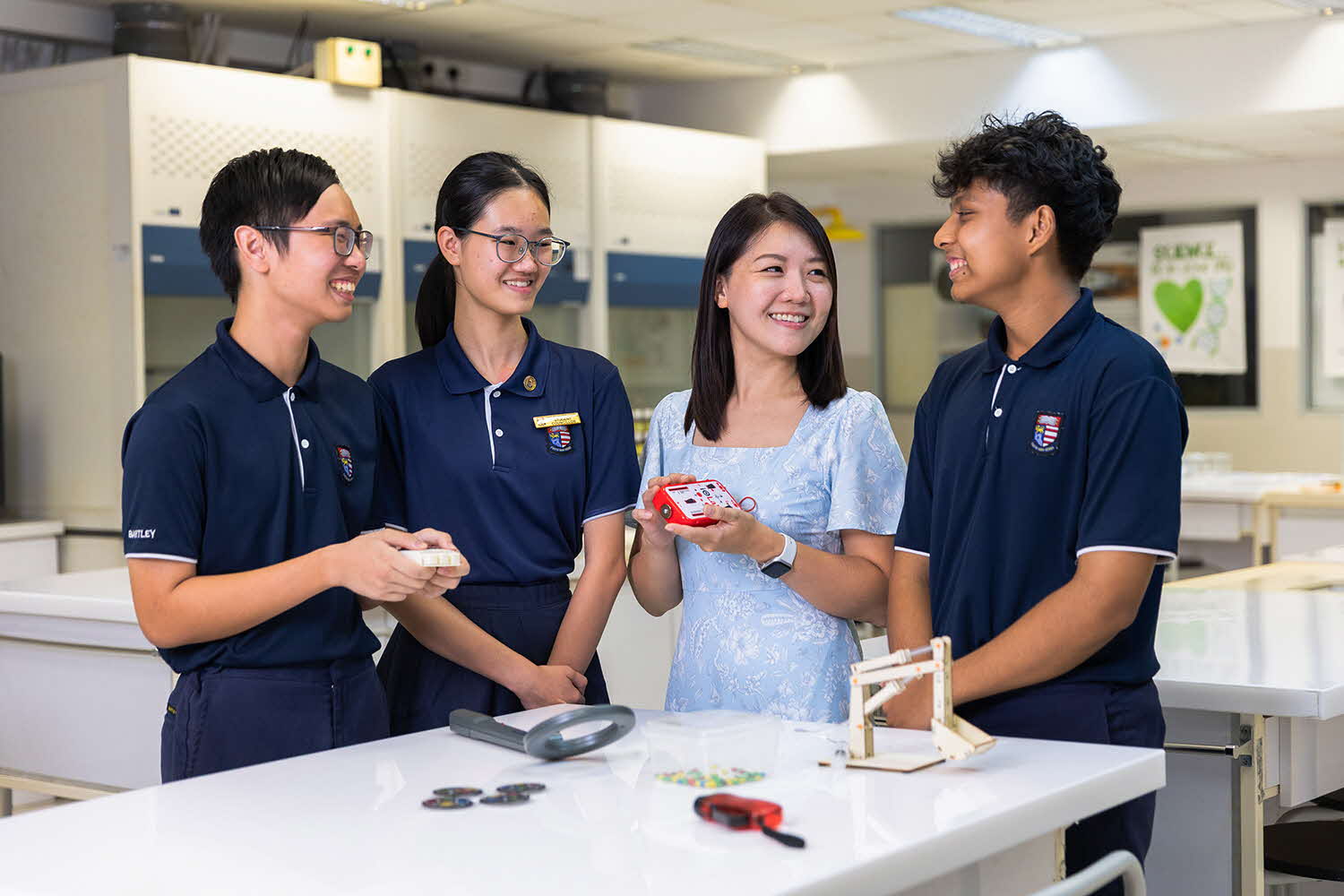How did she get started in this career?
Sheila Devi d/o A N Gopalan joined Cerebral Palsy Alliance Singapore (CPAS) School as a Teacher Aide in 2012. She teaches and supports students with cerebral palsy and multiple disabilities.
She started working with children more than two decades ago when she joined KK Women’s and Children’s Hospital as a Patient Service Associate in 1997. She wanted to support young children even more closely, which eventually led to her completing her Teacher Aide Certification course and joining White Sands Primary School as a Teacher Aide in 2005. This was an experimental scheme with some of the roles that have since become part of the SEN Officer scheme of today.
Ms Sheila’s patience and ability to connect with students with Special Educational Needs (SEN) were recognised by her then-Principal, who encouraged her to join CPAS School where her skills and disposition are in great demand.
“I believe that every child, regardless of their diverse needs, has the right to receive the same choices, opportunities, experiences and joy as other children. Every child can participate fully in the community.”
Sheila Devi d/o A N Gopalan
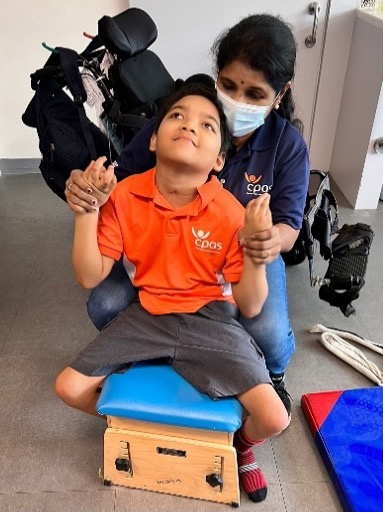
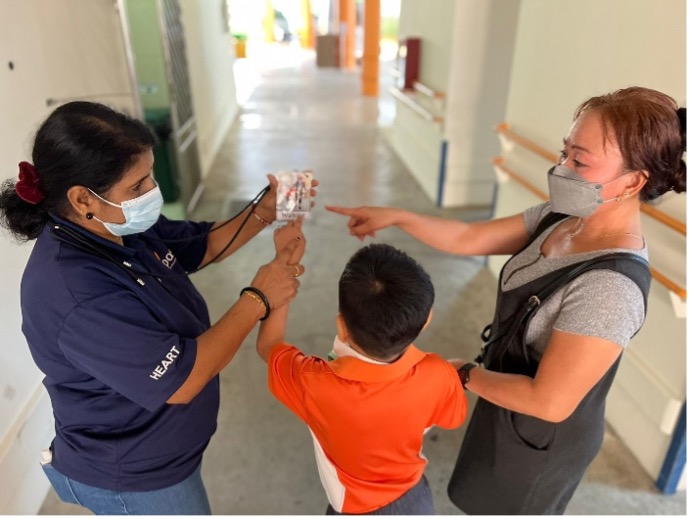
(Left) Ms Sheila supporting her student during a mobility training session, and (right) sharing with a student’s caregiver how the use of picture cards can support communication with the child.
What are the duties of a Teacher Aide?
“Many people think that Teacher Aides are assistants that help students with toileting and feeding needs, but we do much more than that,” says Ms Sheila. In fact, most Teacher Aides are co-teachers who support students in their learning and well-being. As for Ms Sheila, her daily work includes preparing lesson resources and providing focus group teaching to students who require more support and prompts to learn new concepts.
Besides teaching, she devotes a significant amount of time to conduct mobility training for her students to build muscle strength and improve their fine motor skills. “We will support our students on standing frames and tilt tables during class hours to get them to do weight-bearing exercise to strengthen their limbs,” says Ms Sheila. To ensure that the skills taught are transferrable back home, she also works closely with parents and caregivers to share what was covered in the lessons and some complementary strategies they can use at home.
She also benefits from the school’s Trans-Disciplinary (Trans-D) approach where educators and allied professionals meet every month to coordinate their efforts and exchange knowledge and tips. After being trained in how to use assistive technologies such as standing frames and self-feeding spoons, and augmentative or alternative communication devices, she would loan out the equipment to use during class so that students receive ample practice in addition to their therapy sessions.
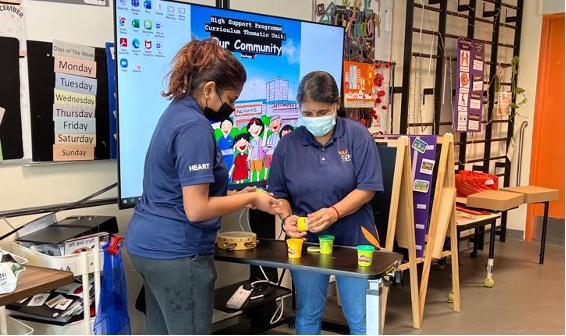
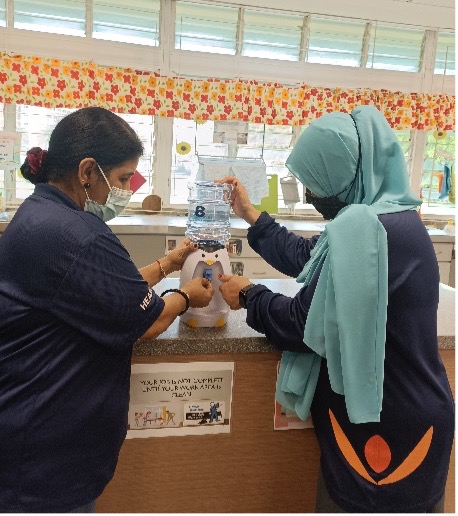 (Left) Ms Sheila and her colleague preparing resources for an upcoming art and craft lesson, and (right) learning how to use a new water dispenser to derive a step-by-step guide for students.
(Left) Ms Sheila and her colleague preparing resources for an upcoming art and craft lesson, and (right) learning how to use a new water dispenser to derive a step-by-step guide for students.
How does she cope with challenges? As someone who sees challenges as opportunities to grow, Ms Sheila maintains a positive attitude at work. For instance, she was at first apprehensive about helping with tube feeding, a complex and delicate task that can take long hours of practice to get right. However, it is important for her students’ feeding needs so she actively sought training and guidance from her colleagues to learn and practise the different methods involved. “I was worried and scared at the start, but I am now able to confidently support a class with three students who require tube feeding.”
When asked about what keeps her going in her role as a Teacher Aide for these 10 years, Ms Sheila replies, “To me, being a Teacher Aide is a calling, and not a job. The role is no doubt challenging, and no two days are the same, but the sense of fulfilment is something that you cannot find elsewhere. If you love children and want to support them in their needs, this is the place to be in.”
| What Teacher Aides doTeacher Aides in Special Education (SPED) schools work closely with teachers and Allied Professionals to provide customised and well-developed learning support for children with moderate-to-severe special educational needs (SEN). MOE continues to partner SPED schools and Social Service Agencies in the professional development of Teacher Aides. |



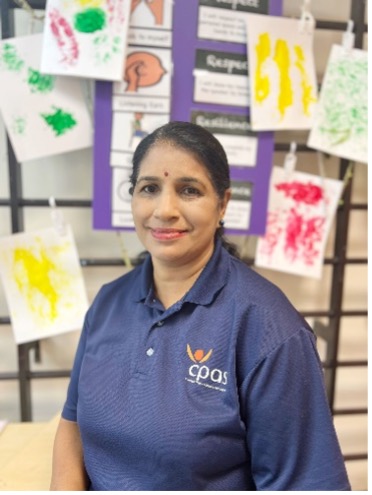

.jpg)
